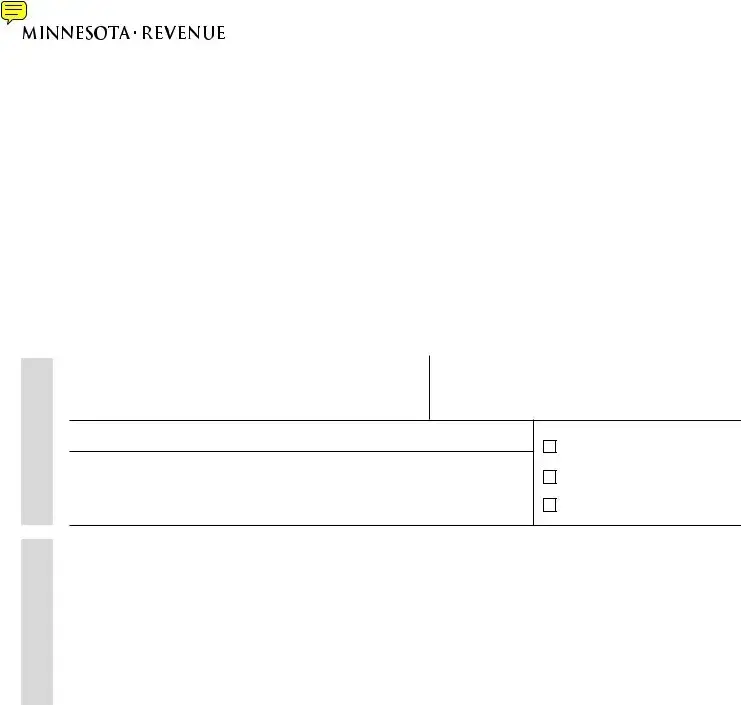The document described, Election for Power of Attorney to receive all correspondence from the Department of Revenue, shares similarities with the IRS Form 2848, Power of Attorney and Declaration of Representative. Both forms allow individuals to designate representatives to handle their tax matters, including receiving refunds, notices, and other communications from the tax authorities. The main difference lies in the jurisdiction and specific tax matters each form addresses, with the IRS Form 2848 applying to federal tax issues and the Minnesota form to state tax and debt collection matters. Both require detailed information about the taxpayer, the appointee, and an explicit authorization for the appointee to receive communications on behalf of the taxpayer.
Similarly, the Healthcare Proxy form, used in many states to appoint a healthcare agent, resembles the Minnesota form in its fundamental purpose of appointing another person to act on one's behalf. In the Healthcare Proxy form, the focus is on medical decisions instead of tax matters, granting the appointee the power to communicate with healthcare providers and make healthcare decisions if the principal is unable to do so. Both forms necessitate the principal's clear identification, the appointed agent, and the scope of the agent's authority, emphasizing informed consent and clarity in the delegation of authority.
The Durable Power of Attorney for Finances is another document that parallels the Minnesota form. It empowers an appointee to manage the financial affairs of the principal, including transactions, investments, and bill payments. Similar to the Election for Power of Attorney form, it requires the appointee's acceptance of the role and details both parties' information. The primary difference lies in the breadth of authority granted, with the financial power of attorney encompassing a broader range of financial matters beyond tax and debt issues.
The General Power of Attorney form shares the characteristic of appointing another individual to act in a wide range of legal and financial capacities on behalf of the principal. Like the Minnesota document, it specifies the rights transferred to the appointee, albeit in a more general sense, covering anything from conducting business transactions to handling legal claims and litigation. Both documents necessitate a clear delineation of the appointee’s powers, ensuring all parties understand the extent and limitations of the delegated authority.
The Limited Power of Attorney form stands out for its specificity in granting powers for a defined task or period, closely mirroring the Election for Power of Attorney form's specialized focus on allowing the appointee to receive tax-related communications. Though broader in potential application, covering tasks from selling a vehicle to managing specific financial assets, both forms share the concept of narrowly tailoring the appointee's authority to specific functions or timeframes, highlighting the principal’s control over the delegation of power.
The Revocation of Power of Attorney form is designed to officially terminate any previously granted power of attorney, including those like the Minnesota Election for Power of Attorney. While it functions inversely to establishing authority, it shares the necessity of identifying the parties involved, the power being revoked, and the formal process to ensure legal acknowledgment of the revocation. Both documents are integral to managing and maintaining control over one’s affairs, giving and taking back power with equal formality and documentation.
The Advanced Directive or Living Will, while focused on end-of-life decisions rather than financial or tax matters, involves appointing an agent to make healthcare decisions when the principal cannot. Like the Minnesota form, it emphasizes the importance of selecting a trusted individual to act on the principal’s behalf, detailing specific powers and preferences to guide the appointee’s decisions. Both documents underscore the thoughtful consideration necessary when conceding control over personal matters, be they health or financial in nature.
